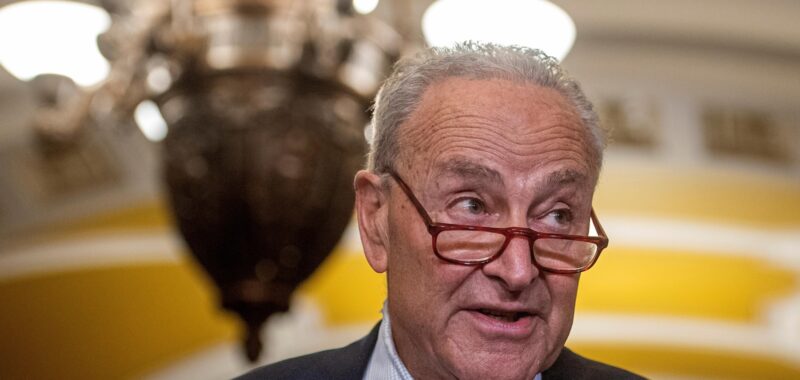HORSEHEADS, N.Y. — Trains for what is being called the nation’s first true high-speed rail line between Las Vegas and the Los Angeles area will be built at a new factory in upstate New York, Senate Majority Leader Chuck Schumer announced Monday.
Siemens Mobility will construct the American Pioneer 220 trains at a 300,000-square-foot (28,000-square-meter) facility in Horseheads, which is near the Pennsylvania line, said Schumer, a New York Democrat. About 300 jobs will be created, he said.
“Upstate New York is unmatched in rail car manufacturing capabilities, with a deep, proud history pioneering the rail industry and a community that is excited to get to work building America’s future,” Schumer said in a statement.
Construction on the $12 billion passenger bullet train service is underway and is expected to be finished in time for the Summer Olympics in Los Angeles in 2028. Brightline West will build more than 218 miles (351 kilometers) of new track along the Interstate 15 corridor between Las Vegas and Rancho Cucamonga, California, where it will link to a commuter rail connection to downtown Los Angeles.
Officials say the aim is for the trains to exceed speeds of 186 mph (300 kph) — comparable to Japan’s Shinkansen bullet trains. That would cut the travel time from four hours by car to just over two hours.
The trains would run faster than those on other high-speed lines in the U.S., including Amtrak’s Acela between Boston and Washington, D.C., which can top 150 mph (241 kph).
The New York factory is expected to begin building the new trains in 2026. Siemens Mobility has agreed that workers at the facility will be represented by the International Association of Machinists and Aerospace Workers.
“Bringing high-speed rail to America is no longer a dream, but a reality,” Marc Buncher, chief executive officer of Siemens Mobility North America, said in a statement.
Brightline received backing from President Joe Biden’s administration, including a $3 billion grant from federal infrastructure funds and approval to sell another $2.5 billion in tax-exempt bonds to build the new rail line. The company won federal authorization in 2020 to sell $1 billion in similar bonds.

